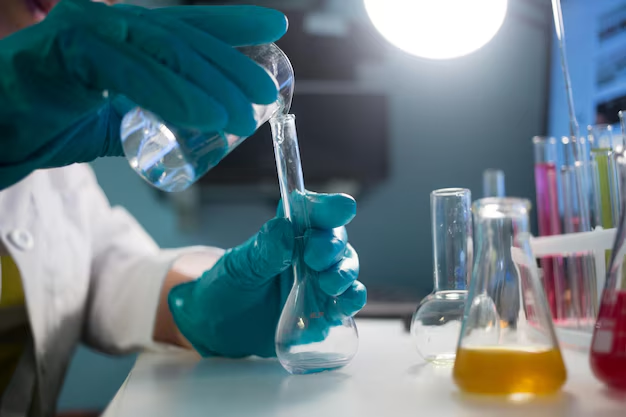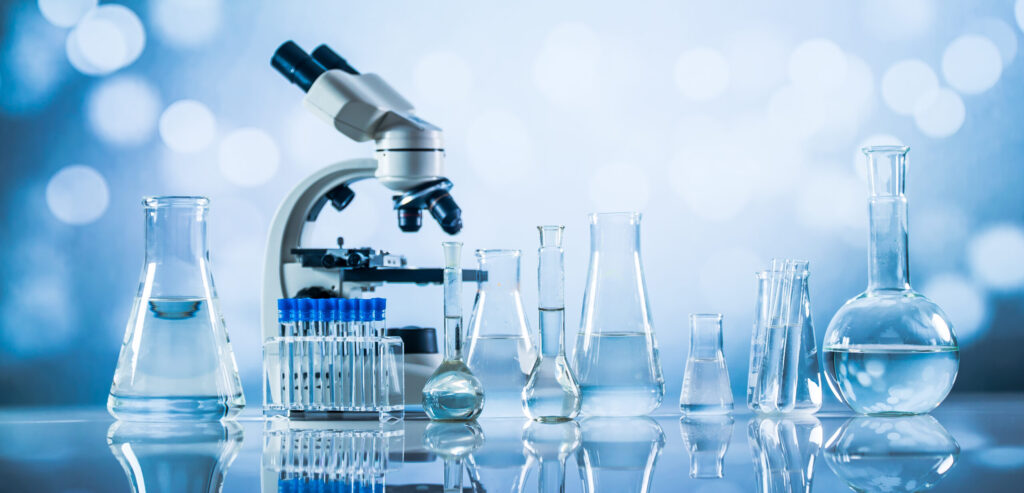Don't miss our holiday offer - up to 50% OFF!
🧪 What Are Research Chemicals and Why Are They Important in Scientific Study?

Introduction
Research chemicals play a pivotal role in advancing scientific knowledge across various fields. Their applications extend beyond just laboratory experiments; they also contribute to innovations in healthcare, agriculture, and environmental science. For instance, in pharmaceutical research, new compounds are often synthesized and tested to discover potential new medications. Understanding how these chemicals function at a molecular level can lead to the development of drugs that target specific biological pathways, improving the efficacy and safety of treatments.
| what are research chemicals used for |
The impact of research chemicals on society is significant. They aid in the development of diagnostic tools that can detect diseases early, allowing for timely intervention and treatment. Moreover, in environmental science, these chemicals help researchers understand the effects of pollutants on ecosystems, leading to better environmental protection strategies. By studying how different substances interact with living organisms, scientists can develop safer agricultural practices that minimize the impact of chemicals on crops and the surrounding environment.
Research chemicals are essential to modern scientific research. Used in laboratories across the world, these compounds enable scientists to study chemical reactions, analyze biological responses, and explore therapeutic potentials in a controlled environment. In this post, we’ll explain what research chemicals are, how they’re used in science, and why sourcing them from a reliable, compliant supplier is critical.
In recent years, the question of what are research chemicals used for has garnered increased attention, particularly with the rise of synthetic biology and the development of novel therapeutics. Researchers are continuously exploring new chemical entities that can lead to breakthroughs in treatment modalities. For example, the identification of certain research chemicals has directly contributed to the creation of life-saving drugs for conditions like cancer, neurodegenerative diseases, and infectious diseases.
Exploring the various types of research chemicals, we find a range of categories such as cannabinoids, designer drugs, and novel psychoactive substances. Each category has unique properties and applications. For instance, cannabinoids are extensively studied for their therapeutic potential in pain management and anxiety disorders, while novel psychoactive substances are often investigated for their effects on the central nervous system. These compounds not only provide insights into their specific effects but also help in understanding broader pharmacological principles.
It is important to highlight the ethical considerations surrounding the use of research chemicals. Institutions and researchers must adhere to strict protocols to ensure that these substances are used responsibly and safely. This includes obtaining the necessary approvals for experiments and ensuring that all research is conducted in compliance with regulatory standards. Ethical research practices not only protect researchers but also the environment and the communities that may be affected by chemical research.
🔬 What Are Research Chemicals?
As we continue to examine what are research chemicals used for, it becomes clear that their potential is vast and far-reaching. The ongoing research and application of these compounds will undoubtedly shape the future of various scientific disciplines.
Research chemicals are chemical substances intended strictly for laboratory research and analytical purposes. These compounds are not approved for human or veterinary use, and they should never be consumed or misused.
They are commonly used as:
- Analytical standards
- Experimental molecules in pharmacological studies
- Chemical tools for biochemical or toxicology research
- Substances under investigation in early-stage drug development
The ability to work with novel or highly pure compounds makes research chemicals vital to scientific innovation.
✅ Why Are Research Chemicals Important in Scientific Research?
In the context of drug development, research chemicals serve as essential intermediates in the synthesis of new pharmaceutical agents. They allow researchers to manipulate chemical structures, leading to the identification of lead compounds that can be optimized for better therapeutic profiles. This iterative process of modification and testing is critical for advancing drug candidates from the laboratory to clinical trials, where their safety and effectiveness can be rigorously evaluated.
Scientists and institutions use lab-grade research chemicals to:
- Test hypotheses in drug discovery research
- Study chemical interactions and biological processes
- Conduct toxicity assessments
- Simulate compound behavior in in vitro experiments
- Identify potential therapeutic candidates in early R&D
These studies form the foundation for new medicines, materials, and technologies.
⚠️ Why Purity and Compliance Matter
Because research chemicals can be highly potent or reactive, working with a trusted supplier is crucial. Here’s why:
- ✅ High Purity ensures consistency and reliable results in your experiments
- ✅ Proper Labeling with clear “Not for Human Consumption” warnings protects legal and ethical boundaries
- ✅ Comprehensive Documentation, including Safety Data Sheets (SDS) and Certificates of Analysis (COA), supports traceability and lab safety
- ✅ Secure Packaging & Shipping prevents damage or legal complications during transport
Responsible research chemical suppliers help prevent misuse and support safe, legitimate scientific work.
Another significant aspect of research chemicals is their role in the academic community. Universities often conduct studies using these compounds to contribute to the body of knowledge in chemistry, biology, and medicine. Educational programs frequently include practical components where students can experiment with these substances, gaining hands-on experience that is vital for their professional development. This experience not only enriches their education but also fosters a culture of safety and responsibility in scientific research.
🏆 Why Choose globalchemsdepo?
We are a leading provider of high-quality research chemicals for laboratory use only. Here’s what sets us apart:
- 🔬 Lab-Tested Purity – Every batch is analyzed for identity and purity
- 📦 Discreet Global Shipping – Safe, secure, and fast delivery
- 📑 Regulatory Compliance – All products sold strictly for legal research use
- 🌐 Worldwide Availability – Serving researchers, universities, and private labs globally
We take compliance, integrity, and customer service seriously. Our goal is to support scientific progress—safely and ethically.
🧠 Conclusion
In addition, the collaborative nature of scientific research often means that findings related to research chemicals are shared across institutions and fields. This collaboration can lead to interdisciplinary studies that further enhance our understanding of complex problems. By pooling resources and knowledge, researchers can address challenges more effectively and develop innovative solutions that benefit society as a whole.
Research chemicals are a cornerstone of scientific advancement. Whether used in pharmaceutical R&D, chemical analysis, or academic exploration, they provide the tools needed for progress. Understanding what are research chemicals used for is essential for ensuring safety and efficacy in research. By working with a trustworthy supplier, researchers can ensure they are using safe, high-purity compounds that meet the strict demands of modern science.
Understanding what are research chemicals used for can prevent misuse.
📌 Looking for verified research chemicals for lab use only?
👉 [Browse Our Online Store]
👉 [Contact Us for Inquiries]
In summary, what are research chemicals used for encompasses a wide range of applications and safety considerations.
To learn more about what are research chemicals used for, contact us today!
As we consider the future of research chemicals, the ongoing development of green chemistry practices is worth noting. Researchers are increasingly focused on finding sustainable alternatives to traditional chemical processes, leading to the synthesis of less harmful substances. This shift not only addresses safety concerns but also contributes to environmental sustainability, showcasing how the field is evolving to meet modern challenges.

In conclusion, the exploration of what are research chemicals used for reveals a rich tapestry of applications that extend far beyond the laboratory. From pharmaceutical advancements to environmental stewardship, these compounds are integral to the progress of science and technology. As researchers continue to uncover new possibilities through the study of these chemicals, the importance of responsible use and ethical considerations will remain paramount.
With the rapid pace of scientific advancement, it is crucial to stay informed about the developments in research chemicals. By engaging with reputable suppliers and participating in discussions about their safe use, researchers can contribute positively to the innovative landscape of modern science.
Ultimately, understanding what are research chemicals used for enhances our appreciation of their significance in scientific research and the broader implications for society. As we strive for innovation, let us remain vigilant in ensuring that research is conducted ethically and with the utmost care, paving the way for future discoveries that will benefit humanity.

[…] regulatory landscape of research chemicals—also known as novel psychoactive substances (NPS)—is continuously evolving. As new analogues […]
[…] the landscape of research chemicals or novel psychoactive substances (NPS) continues to evolve, forensic laboratories are constantly […]